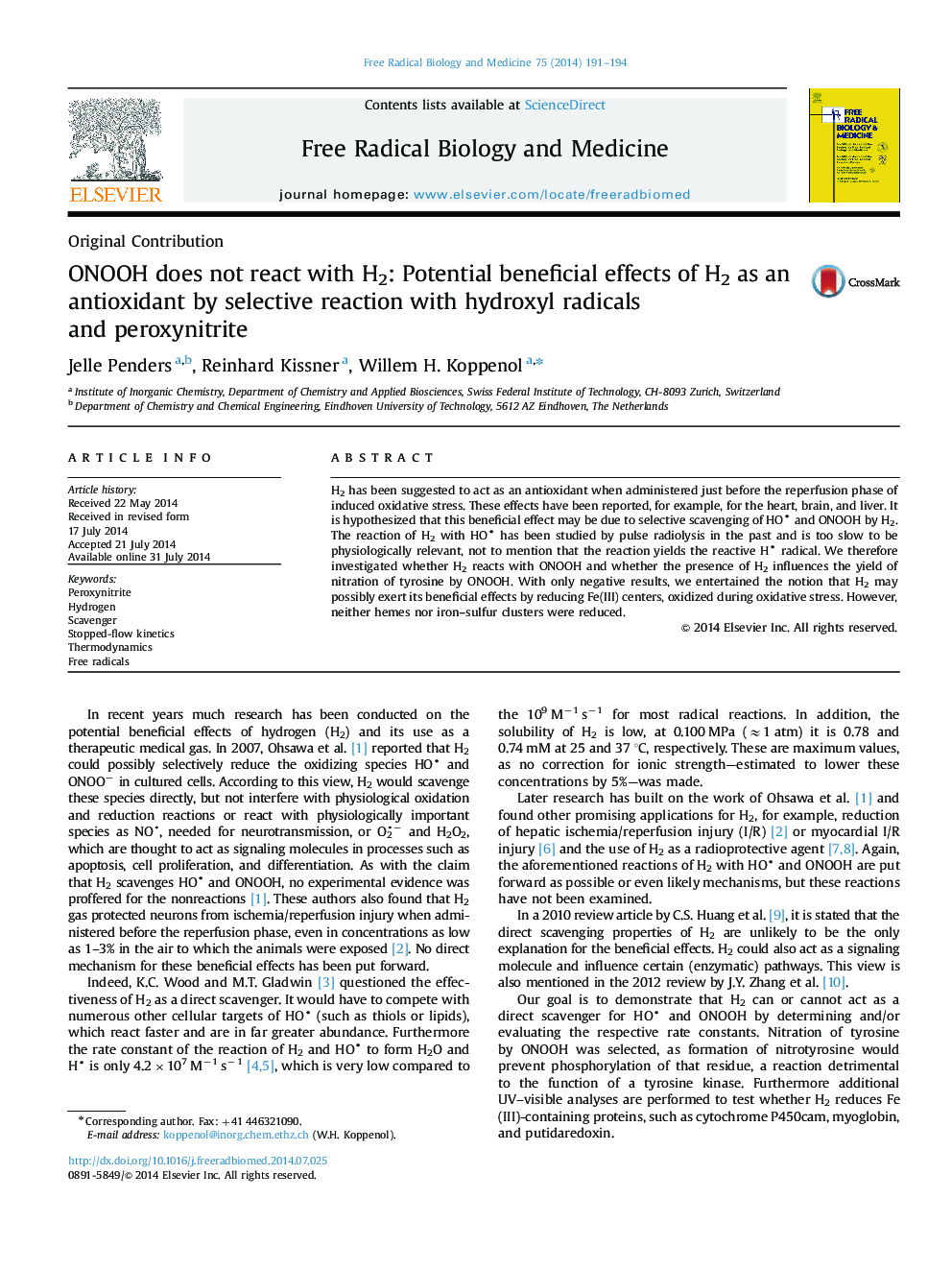| Article ID | Journal | Published Year | Pages | File Type |
|---|---|---|---|---|
| 8270036 | Free Radical Biology and Medicine | 2014 | 4 Pages |
Abstract
H2 has been suggested to act as an antioxidant when administered just before the reperfusion phase of induced oxidative stress. These effects have been reported, for example, for the heart, brain, and liver. It is hypothesized that this beneficial effect may be due to selective scavenging of HOâ
and ONOOH by H2. The reaction of H2 with HOâ
has been studied by pulse radiolysis in the past and is too slow to be physiologically relevant, not to mention that the reaction yields the reactive Hâ
radical. We therefore investigated whether H2 reacts with ONOOH and whether the presence of H2 influences the yield of nitration of tyrosine by ONOOH. With only negative results, we entertained the notion that H2 may possibly exert its beneficial effects by reducing Fe(III) centers, oxidized during oxidative stress. However, neither hemes nor iron-sulfur clusters were reduced.
Related Topics
Life Sciences
Biochemistry, Genetics and Molecular Biology
Ageing
Authors
Jelle Penders, Reinhard Kissner, Willem H. Koppenol,
